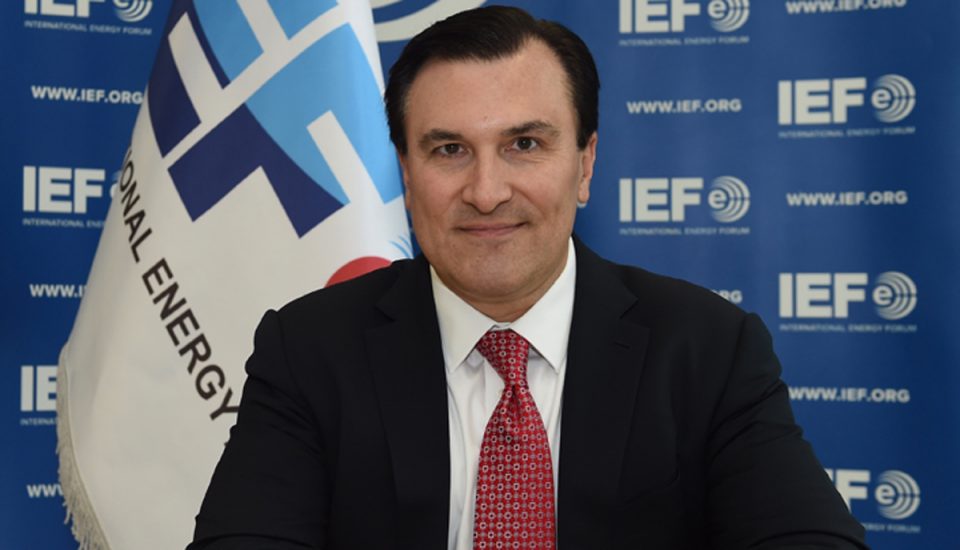The Secretary-General of the International Energy Forum (IEF), Joseph McMonigle, held a video call with a senior Japanese diplomat on Thursday to discuss rising global energy prices and the outlook for the future.
Mr Ono Keiichi, Director-General of the Economic Affairs Bureau at the Ministry of Foreign Affairs of Japan, stated that Japan was seriously concerned by soaring crude oil prices which had a great impact on the world economy.
The call with the Japanese Foreign Ministry is one of a series of consultations the IEF is conducting with key member countries. Mr. McMonigle said the IEF was working to help stabilize the energy market through dialogue between producers and consumers.
“We urge producer and consumer countries to have a sensitive focus on energy market stability and prevent any disruption to supplies that could lead to further increased prices and heightened volatility,” he said.
“Security of supply is going to be even more essential for market stability going forward than in the past due to the heightened uncertainty. Sustained high energy prices are detrimental to consumers and the global economy,” he added.
Latest forecasts by the IEA and OPEC suggest that current tight supply/demand balances were expected to ease with the arrival of increased oil supplies later this year, he said.
According to latest data from the Joint Organisations Data Initiative (JODI), oil inventories in the OECD are at their lowest level since 2014 at 255 million barrels below their five-year average. Global spare oil production capacity is approximately 4 million barrels per day and spare capacity for natural gas supply is practically non-existent, the data show.
Global oil demand recovered to 98 percent of pre-COVID levels in December, while crude oil supply was at 95 percent of pre-pandemic levels, according to JODI data. More than half of the shortfall in supply was from the United States, where crude oil production was down by 1.2 million barrels per day versus pre-COVID levels, according to the data.
Two consecutive years of investment shortfalls in upstream oil and gas projects have also undermined energy security and market stability, Mr McMonigle said.
A recent report by the IEF and IHS Markit showed that upstream investment in the oil and gas sector remained depressed for a second consecutive year in 2021 at $341 billion, 23 percent below the pre-pandemic level of $525 billion.
Mr. McMonigle said: “The market is vulnerable to volatility given tight supply/demand balances, reduced inventories, and low spare production capacity. The shortfall in investment in upstream oil and gas projects and supply chain bottlenecks has further exposed the global energy system to risks.”
Mr McMonigle thanked Mr Ono for Japan’s support for the IEF’s work to promote transparency in oil and gas markets through JODI and said he looked forward to visiting Japan to further strengthen cooperation.
Mr McMonigle invited Japan to participate in a series of high-level IEF meetings planned for this year including the 17th IEF Ministerial Meeting hosted by Saudi Arabia, the 9th Asian Ministerial Energy Roundtable hosted in India and the IEF-IGU Ministerial Gas Forum to be held in Egypt.




